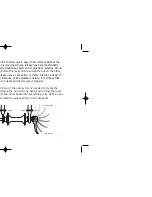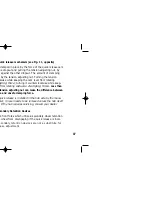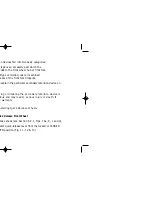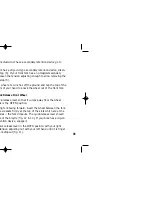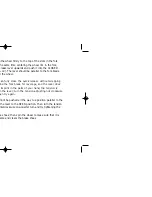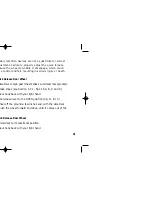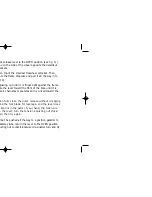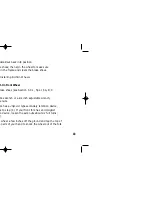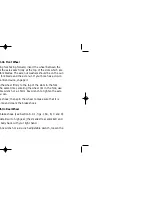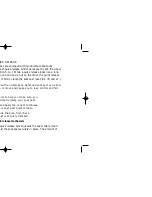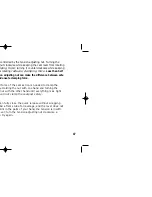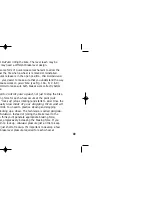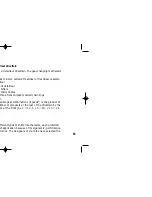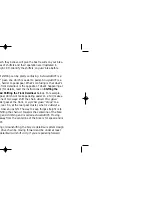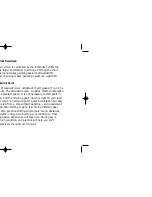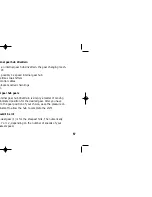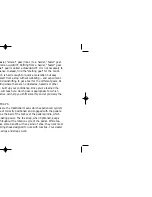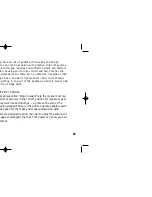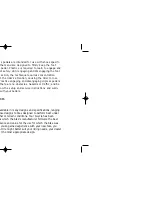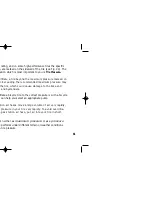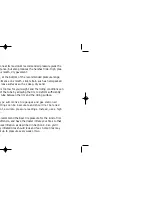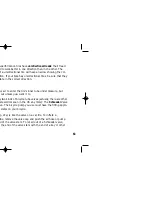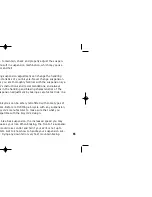
50
different speeds and on different surfaces. To better understand this,
experiment a little by walking your bike and applying different amounts
of pressure to each brake lever, until the wheel locks.
WARNING: Some bicycle brakes, such as linear-pull (fig 16B) and
disc brakes, are extremely powerful. You should take extra care in
becoming familiar with these brakes and exercise particular care
when using them. Applying these brakes too hard or too suddenly
can lock up a wheel, which could cause you to lose control and fall.
When you apply one or both brakes, the bike begins to slow, but your
body wants to continue at the speed at which it was going. This causes
a transfer of weight to the front wheel (or, under heavy braking,
around
the front wheel hub
, which could send you flying over the handle-
bars). A wheel with more weight on it will accept greater brake pressure
before lockup; a wheel with less weight will lock up with less brake pres-
sure. So, as you apply brakes and your weight shifts forward, you need
to shift your body toward the rear of the bike, to transfer weight back on
to the rear wheel; and at the same time, you need to both
decrease
rear
braking and
increase front
braking force. This is even more
important on steep descents, because descents shift weight forward.
!
2000 owner's manual 10/27/99 10/27/99 11:16 AM Page 50
Содержание Bicycles
Страница 108: ...4 ...

